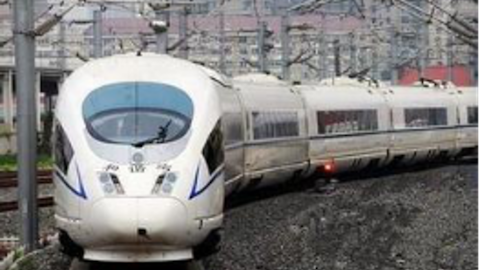And I think that seemed to be true maybe for industry, not just for UP, but I don’t know if you have thoughts on that. And then maybe the clarification on intermodal.
Lance Fritz : Yes, Tom, let me start with your essential question about the three legs of the stool. We’ve forever talked about, we drive margin improvement through productivity, price and the benefit of volume. And to your point, we’ve leaned heavily on productivity and price historically. And we said we’re in a transition where we’re going to have to lean more heavily on volume. But that’s not going to be the only leg of that three-legged stool, Tom, when you — it’s still true. While inflation got on us quick, the way our contracts and our business relationships are set, it takes us a while to recoup that inflation through price. Kenny’s team has been crystal clear that they own the requirement to do that, and they’re following through.
But it’s going to take a little while. And on productivity, like we just demonstrated this quarter, we created a new agreement, makes all the sense in the world. It came with a 70 — roughly $70 million price tag immediately. Implementing it is going to get the payback and will be paid back in about two years. So Tom, the opportunity for productivity, price and volume to still drive margin improvement exists. We’re in kind of a unique environment right now regarding timing. And we are, for sure, going to have to rely on volume more heavily going forward.
Kenny Rocker: Yes. Just a short answer. No, we’re not expecting increased pricing pressures on that intermodal side of the house.
Tom Wadewitz : Okay. So you think stable revenue per car 3Q versus 2?
Kenny Rocker: That’s how you should be thinking about it.
Operator: Our next question is from the line of Ben Nolan with Stifel.
Ben Nolan : So Kenny, you mentioned the Falcon Express a little bit ago. I’m curious if you have any early takes. Any — how are things thus far developing the way that they thought you would or you thought they would? Or any early indications that — of how you’re expecting it to play out over the back half of the year?
Kenny Rocker: I think you’re asking, have we seen any success stories? And yes, we’ve had some early wins. Of course, the focus is over the road. I mean that’s the size of the prize. Rail is a very small part of that traffic that’s moving out of Mexico or into Mexico. As I also said, as we continue to improve the speed and consistency there, we expect to make more inroads.
Ben Nolan : Okay. And so far, as expected?
Kenny Rocker: Yes. I mean we’re getting more reception from customers that are open to opening their books and giving us a shot, for sure.
Operator: Our next question is from the line of David Vernon with Bernstein.
David Vernon : Lance, congratulations and good luck. So Eric, with the 400 to 600 heads that we need to add in for the part time off or paid time-off agreements, how many of those people are going to be on property by the end of this year? And then how should we think about reconciling that with the — a flat head count number from 2Q? Are we making reductions in operations? Or is it coming out of other areas?
Jennifer Hamann : Yes. So I’ll actually jump in on that one. So it is — when you think about the 400 to 600 incremental that we talked about from the labor agreements, that’s incremental from what we would have otherwise been staffing at a given volume level. So that is completely consistent with and taken into account with when we also say, as we look at head count levels now to the end of the year, we think not a whole lot of change. So…





